
GYSS participants share their experiences
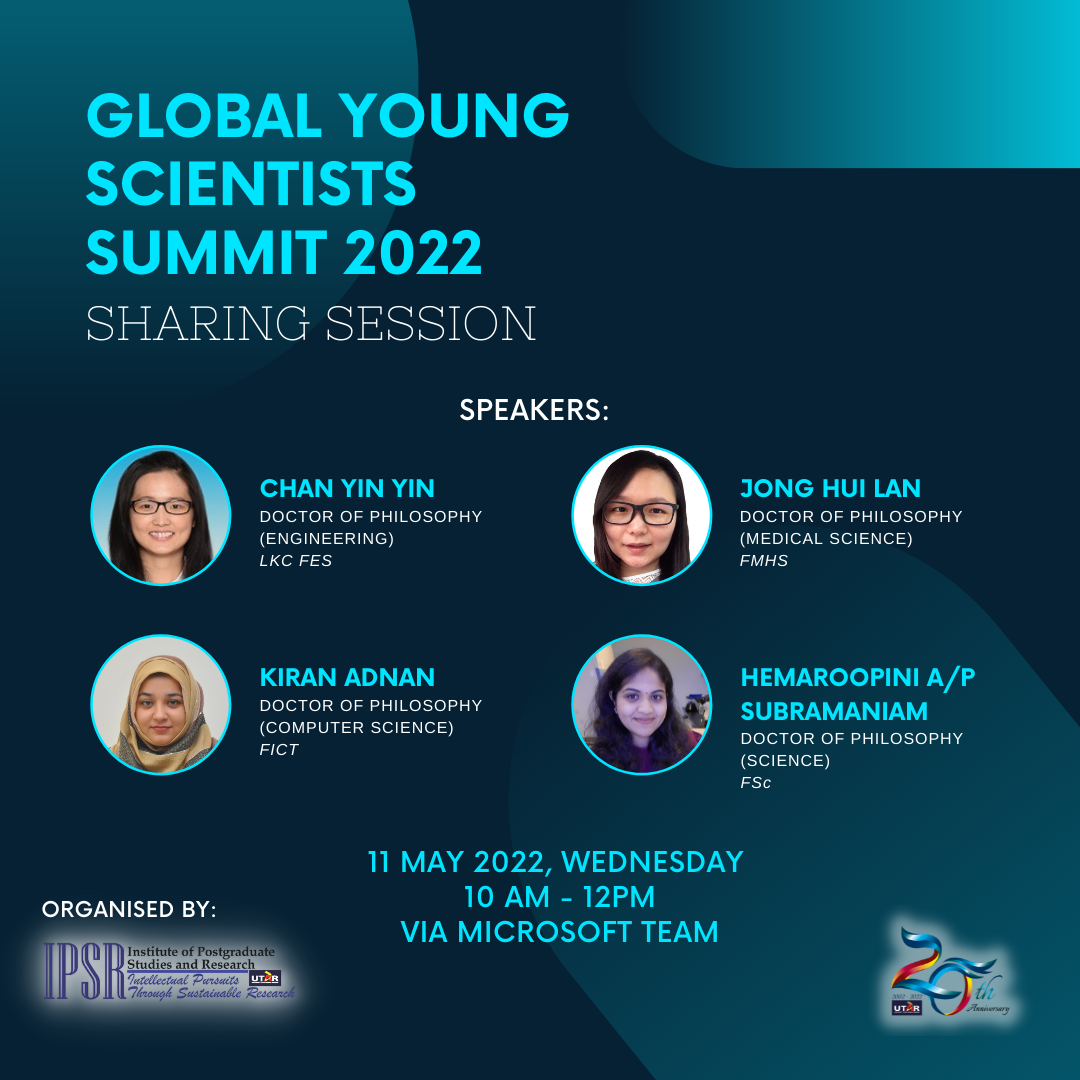
Four GYSS participants were invited to share their experiences of taking part in GYSS 2022 at a sharing session
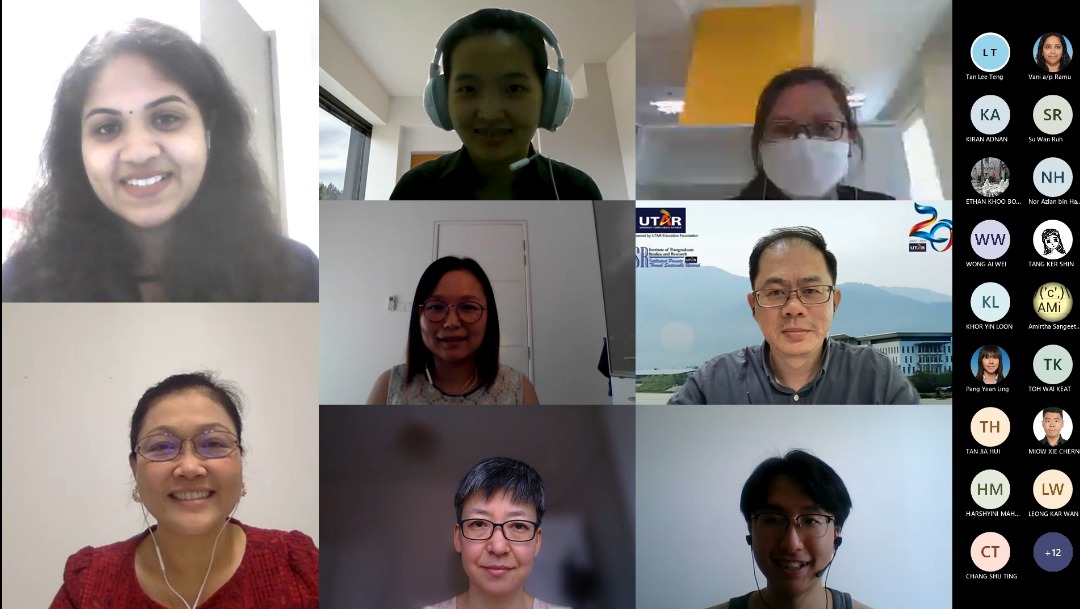
The four speakers with participants
Four Global Young Scientists Summit (GYSS) participants were invited to share their research studies and their experiences of taking part in GYSS 2022 at a sharing session organised by UTAR Institute of Postgraduate Studies and Research (IPSR) on 11 May 2022 via Microsoft Teams.

Dr Yong delivering his speech
Invited to deliver the opening speech was Institute of Postgraduate Studies and Research Director Assoc Prof Dr Yong Thian Khok. In his remarks, he shared the background of GYSS and said, “This summit was basically organised by Singapore with the intention to bring the bright young researchers and also the top scientists from around the world to discuss the science and technology trends and the future changes as well as how research can address some of the major global challenges. They started these events in 2013 to enable young scientists to pursue their scientific dream through close interaction with distinguished scientists and researchers, and with peers. The speakers are from the Nobel Prize winners in the different disciplines ranging from physics, chemistry, psychologies, and others.” He also hopes that PhD students who participate in the sharing session could have a better idea about GYSS through the sharing by the four speakers.
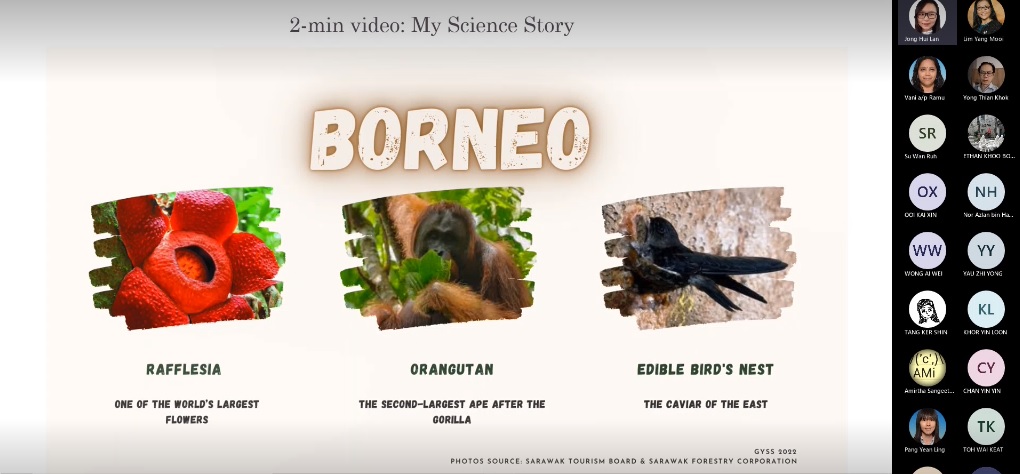
In Jong’s video, she revealed that her interest in natural product research grew naturally, questing after the truth behind the mysterious hitting power of nature
Science Officer I Jong Hui Lan from the Faculty of Medicine and Health Sciences was the first to present her experience of joining the GYSS earlier this January. She gave a brief introduction on her study about genome editing and edible bird nest, and shared the benefits of her study in terms of economic and infrastructural contributions. She shared the process and the story of participating in the GYSS and presented her two minutes video of a science story.
Jong said the participation in the summit provided her with the opportunity to meet new people from different fields of study. “I met people from different fields such as structural engineering, environmental sciences, neuroscience, natural products and chemical engineering. It is interesting to know what they are actually doing,” she said, adding that she enjoyed exchanging research knowledge with other participants from different backgrounds.
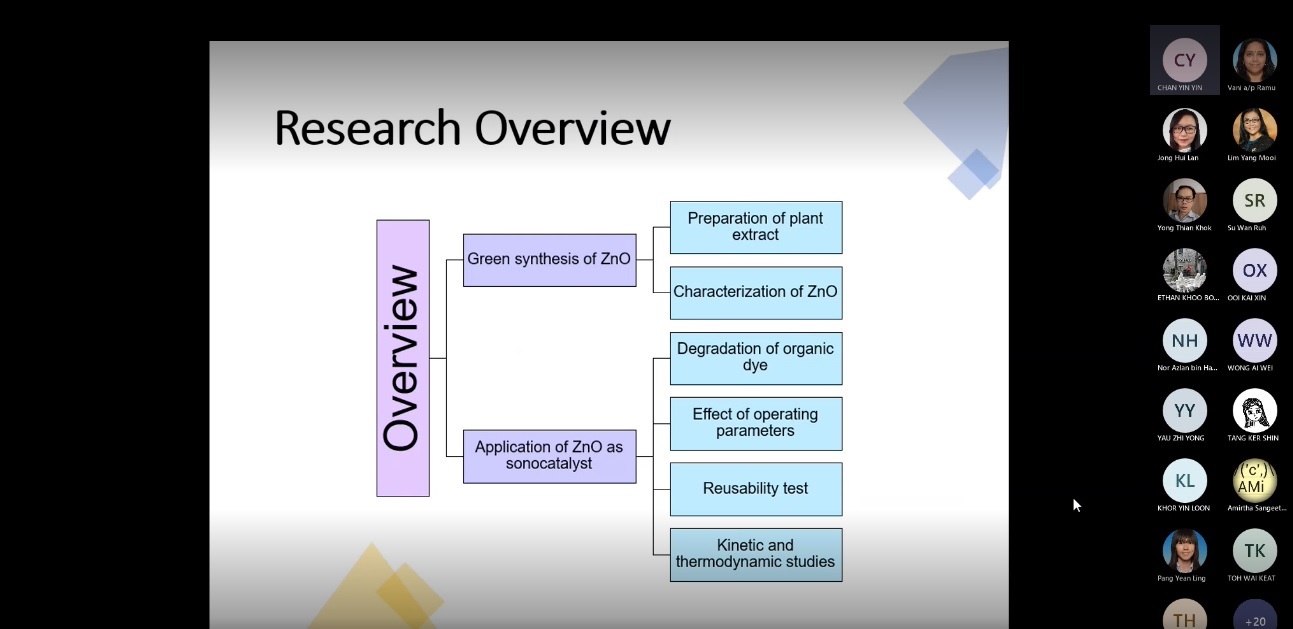
Chan sharing the overview of her research study
The second presenter was Chemical Engineering student Chan Yin Yin who was from the Lee Kong Chian Faculty of Engineering and Science. Chan shared her journey of studying at UTAR and her research focus on the green synthesis of zinc oxide and its application in sonocatalyst. She also shared the video presentation that she prepared for the video contest in GYSS 2022, where the video showed sonocatalysis as a newly emerging method that applies ultrasound to provide energy to the catalyst. The catalyst will break the hazardous pollutant into less harmful products.
She said, “During the summit, I was able to explore the current research issues and perspective for future research directions. One of the take-home messages that I remember the most is ‘it is never too late to start’. Sometimes we will construct ourselves with a time frame. We will ask ourselves, are we starting the study too late compared to our best friends?” She continued, “Time cannot be an excuse to stop our determination in doing research. I remember a scientist who claimed that he was an expert in physics during his young age but he shifted to the biological field in his 40s. This story is quite inspiring because age did not stop him from exploring the beauty of science.”
She shared a few words to encourage people to join GYSS in the coming years. “Firstly, it is important to be active in various events related to research, such as presentation contests, conferences and paper publication. Also, a clear and concise resume is important to promote yourself to the authorities,” she said.
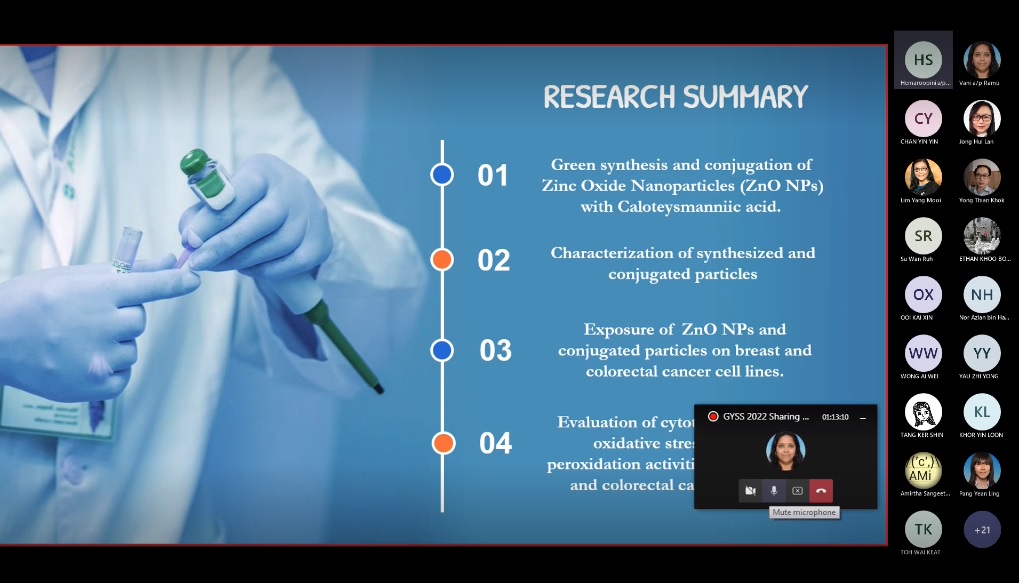
Hemaroopini sharing her research summary
The session continued with the presentation by Hemaroopini Subramaniam, the assistant laboratory manager from the Faculty of Science. She gave a brief introduction about her research, explaining it is a continuation of her master’s project which focuses on the green synthesis of zinc oxide nanoparticles mediated by a plant species known as Calophyllum teysmannii. She also shared her research journey through a video presentation.
According to her, the summit was a multidisciplinary five-day event that provided a platform for conversation on science and research, technology innovation and society, and solutions to global challenges. She was given the opportunity to take part in lectures, plenary sessions, and panel discussions. “It is a huge and great platform to network with young scientists from different parts of the world. It boosted my passion and interest in what I’m doing,” she said.
She added, “There were many key takeaway points that I obtained from the summit. It is very important for us to be brave and step out of our comfort zone. Love what you do and consistently learn because success does not take place overnight. It is also important to be open to learning and share knowledge with others. Another crucial point that I have learned from the Nobel Prize winners is— do not work for recognition, but do work that is worthy of recognition.”
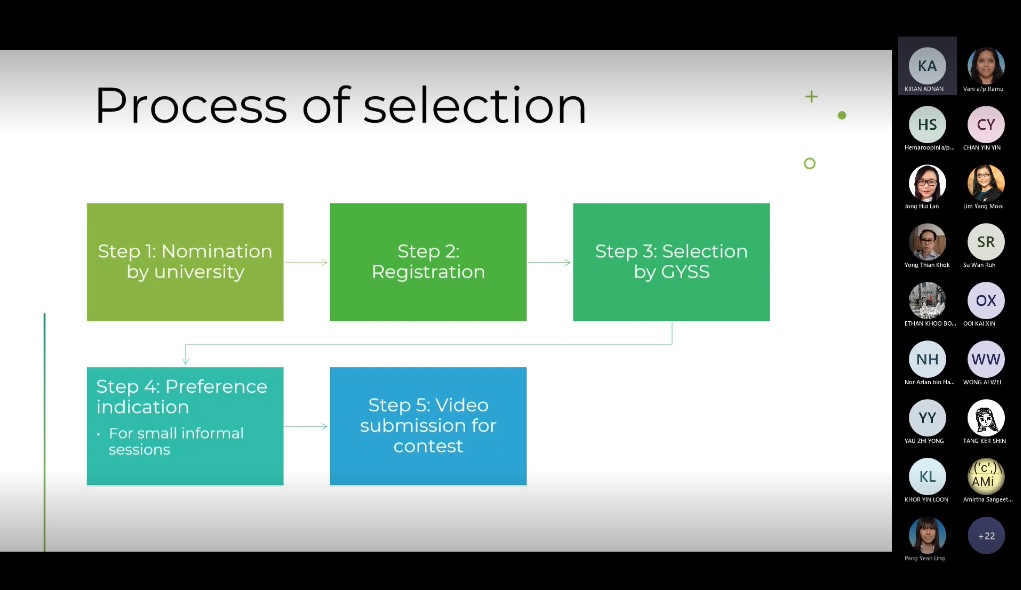
Dr Kiran Adnan sharing the process of selection for GYSS 2022
Dr Kiran Adnan who was a PhD (Computer Science) student graduated from the Faculty of Information and Communication Technology shared the process of registration and selection, video evaluation criteria, as well as her project details. The research she presented was about unstructured data analysis, which refers to data that can be free text, images, audio and video that cannot be stored in row and column form.
Her research focused on how to make the huge volume of unstructured text usable for analysis.
“More than 80% of data is unstructured. Gaining the information from unstructured data is one of the most critical challenges in the big data analytics domain because the free text contains subjective intentions,” she said. She also shared the lesson learned from preparing the video presentation. “Present your video with real-time problem within a story to explain the importance of your research to the other scientists. The video should be interactive and interesting,” she said. The sharing session then ended with a photography session, followed by a Q&A session.
© 2022 UNIVERSITI TUNKU ABDUL RAHMAN DU012(A).
Wholly owned by UTAR Education Foundation (200201010564(578227-M)) LEGAL STATEMENT TERM OF USAGE PRIVACY NOTICE